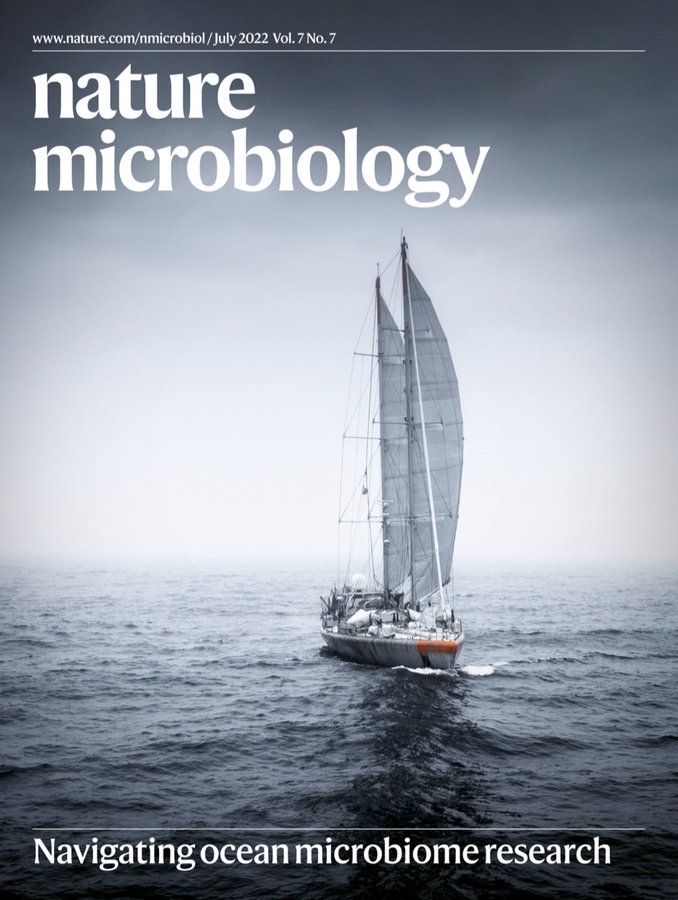Recommending priorities for the study and protection of the ocean microbiome, a hidden universe that regulates the health of our planet
The lecturer Ibon Cancio of the Plentzia Marine Station (PiE-UPV/EHU) has contributed to the article featured on the cover of the July issue of Nature Microbiology
- Research
First publication date: 04/08/2022

The ocean microbiome is a hidden universe that makes up more than two-thirds of the biomass in our oceans. Galaxies of microbes, including bacteria, archaea, fungi, microalgae and marine viruses, compete for space and food, while forging intricate relationships with each other and with their environment. These microbes perform functions that benefit the ocean and the planet as a whole. They are nutrient providers, cloud formers, debris removers, water purifiers, chemical engineers and architects of the ocean food network. They produce as much oxygen as all the world's rainforests put together and absorb more carbon dioxide than the rainforests.
The Plentzia Marine Station (PiE-UPV/EHU-University of the Basque Country), which is part of the EMBRC-ERIC (European Marine Biological Resource Centre), the pan-European research infrastructure for marine biology and ecology research, has worked in conjunction with researchers from Tara Oceans, the Tara Ocean Foundation and the EMBL (European Molecular Biology Laboratory) to establish a set of priority objectives for the study and understanding of the marine microbiome, how it functions and responds to climate change, and how this affects the fundamental services provided by the oceans. These priorities have been published in the prestigious journal Nature Microbiology (https://www.nature.com/articles/s41564-022-01145-5) and the article in question also features on the front cover of the journal.
A well-functioning ocean microbiome depends on diverse, abundant microbial communities. Threats such as global warming, sea ice melt, ocean acidification, coastal degradation, overfishing and pollution can distort it and undermine its productivity.
The article in Nature Microbiology sets out priorities for understanding and protecting the ocean microbiome in the context of these growing threats. These objectives should be seen as opportunities to take advantage of recent scientific advances and to help raise awareness of the importance of microbes. It also aims to ensure that ocean microbiome research benefits societies around the world, and that resources from areas beyond national jurisdictions can be shared fairly.
“Understanding ocean microbiomes is one of the most exciting areas of research today, as many questions remain unanswered for scientists. While research teams around the world continue to uncover its greatest secrets, this article aims to focus on sharing efforts and proposing the necessary tools and means to tackle one of the key questions in marine biology today,” explained Ibon Cancio.
Bibliographic reference
- Priorities for ocean microbiome research
- Nature Microbiology volume 7, pages 937–947 (2022)
- DOI: 10.1038/s41564-022-01145-5



